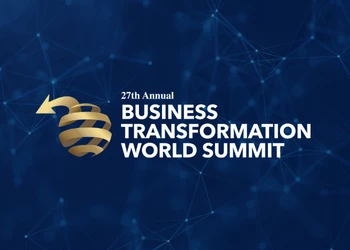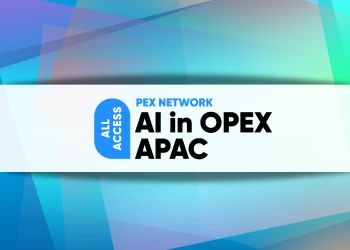Evolving Process Excellence (Part 3): Net speed requires "new tools for a new game"
Add bookmark|
The ability to deal with change has always been important. Like the Darwinian struggle for survival, those who fail to adapt to changing circumstances eventually face extinction. However, as the pace of change accelerates, businesses must get better at embracing and adapting to it. According to Jim Carroll, author and futurist (and keynote speaker at last year’s PEX Week USA), the future belongs to those who are fast. Those companies who can quickly adapt their business models, processes and operations to take advantage of new opportunities are those who will prosper, he says. Those who find themselves slow, or unwilling, to change will eventually find themselves slipping behind their competitors. So how can quality and continuous improvement help organizations deal with this "fast future"? |
The future belongs to those who are fast. |
In the third of a 7 part series on PEXNetwork.com on next generation process excellence, experienced process professionals discuss the impact that the accelerated pace of change is having on approaches to process excellence and how it can support organizations contending with massive change.
The following transcript has been excerpted from a roundtable discussion recorded last year. For a full transcript of the debate, download this whitepaper: Quality and Continuous Improvement in an Age of Transformation.
The following transcript has been edited for readability.
Question: What impact is the rapid pace of change having on approaches to quality and continuous improvement?
|
Gregory North, Vice President Lean Six Sigma, Xerox: We can’t bring the same tools to a different game. If you we go into a net speed world where we’re also dealing with ERP implementations and whole-scale changes in global processes, which often is suffused with IT organizations, major investment strategies, and consultants brought in from the outside to provide guidance. If that’s the new game we’re in, we need to bring to that match something that amounts to a different lens and a different set of skills and competencies. |
I think that means that we need to help surface individuals who are very good at double clicking out until they see the macro business picture - not just within the four walls of our corporation - but also across the silos of companies into alliances; upstream and downstream of our business, looking to our customer space and our customer’s customer space.
In addition to that, the sense here is that process design and optimization on a grand scale is a more important skill-set than some of the detailed and rigorous process analysis that, for example, Lean Six Sigma has been famous for over the years. It’s really now, more about crafting a big picture of what can be accomplished with a blank sheet of paper and then being able to operationalize that through extremely successful global program management. I would say those are the new competencies we’re trying to, both surface within our existing talent pool, and bring in from outside.
|
Estelle Clark, Business Assurance Director at Lloyd’s Register: "I agree on a number of points. To pick up on a couple: for me, global program management is really key. I remember a time when you did a project and then you started off another project. You might have had some working in parallel, but they probably weren’t operating in the same space, so that you had some distinction between the things that you were trying to change. |
Now, I don’t know of any organization that’s not having a transformation portfolio and many of the things that are happening are operating in ways where the project or changes are interrelated. You need to be able to have people managing this who understand those interrelationships, because we can’t afford the time to run everything serially, so we have to learn how to do it in parallel.
We also need people who are able to pick up on the fact that everything’s faster, whilst also picking up on the fact that everything needs to link to strategy. The sorts of people you need to be having in your system need to be able to make that strategic link and not actually just think that they’re making some potential small-scale changes.
I think that some of the speed of change and things that are happening in the world at the moment, make people feel that they’re out of control. They feel that there are lots of things that are happening - black swan type events - which people weren’t able to predict.
One of the reactions to that, typically, is more compliance and more regulation - the desire for society to actually put in place more rules. Typically, the quality management system is one of the places, where the rules get described, in order to make sure that the organization remains legal.
I know that in my particular role, on one hand, I’m trying to do things faster, I’m trying to do more things and I’m trying to link all these things together. On the other hand, there’s just a huge, huge, huge influx of new rules and regulations to take account of that actually work completely contrary to what you’re trying to do through transformation. It really is quite a tricky balancing act.
|
Vince Pierce, Senior Vice President Global Business Transformation, Office Depot: "I think the point is that business is changing and it’s changing quickly and it’s enabled, primarily, by technology. But consumer behavior is shifting, things are becoming distributed, much more connected and social is a big part of what we do today. |
I think the impact those elements have on process excellence is that they are forcing us to be able to apply a set of universal principles. The things we do in our profession are not limited to transactional environments or manufacturing environments. The thinking that we go through, the ways we approach the work, the tools that we use, I think, we all agree, are universal.
The challenge is going to be, can we apply those concepts and tools in relevant ways as the world around us changes? I think that’s where we really struggle. I think this is where we’ve got to go beyond training in the methodologies and the concepts. I think we need a broader skill-set for our process excellence professionals today. More utility players, if you will.
Aside from functional domain knowledge and expertise, like supply chain or financial services, we need to think about business acumen. Estelle mentioned program management and to that I would also add change management, a baseline level of technology acumen, facilitation skills, coaching skills, the ability to talk about strategy, to understand what a business model is and how to apply the A3 thinking, for example. You also need to apply basic PDCA thinking to how you would engage and contribute in architecting a new business model, or how you would engage in organization design, competency modeling, or technology requirements.
Our thinking and our tools apply, it’s just applying them in a new context, which requires a baseline level of understanding across a number of dimensions."
For a full transcript of this discussion, you can download the free whitepaper: Quality and Continuous Improvement in an Age of Transformation
But what do you think? Have the rules of the game changed? If so, what are the new tools we require?
[eventpdf]




















